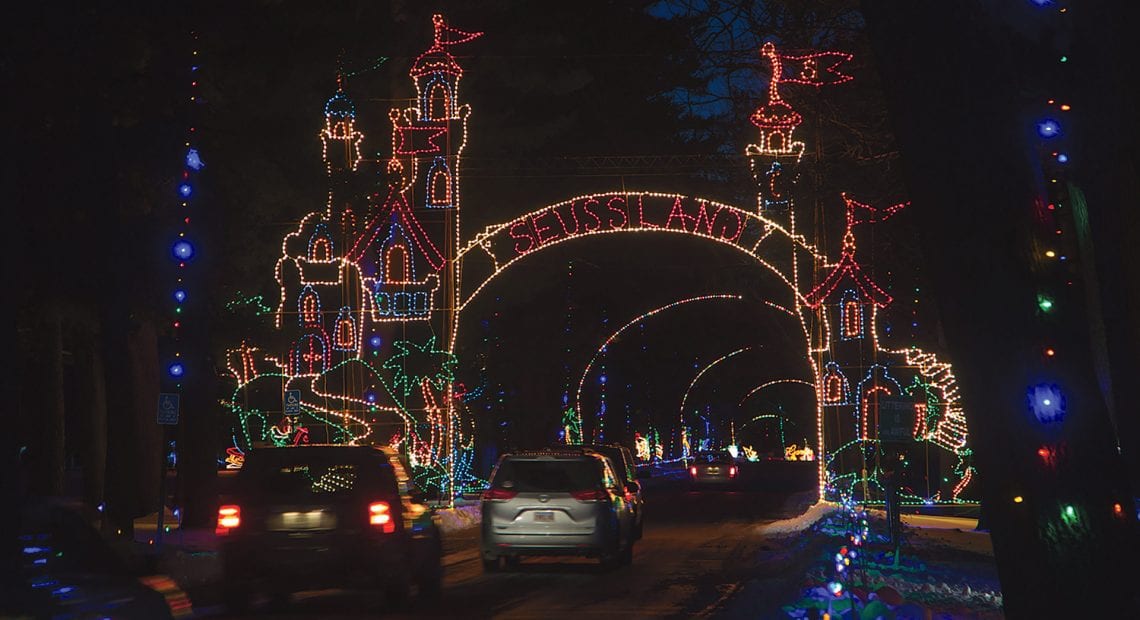
Region’s Tourism and Hospitality Industry Proves Resilient
Survival Mode
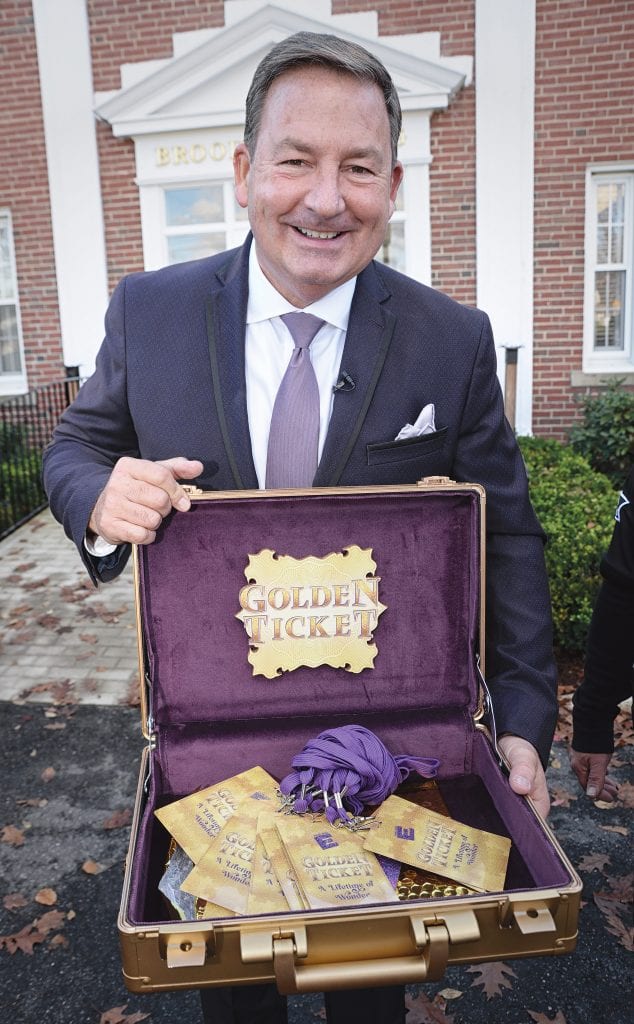
Gene Cassidy with the ‘golden tickets’ that have generated excitement for the Big E — but also raised money at a time revenue is badly needed.
When the Big E recently announced the sale of 100 ‘golden tickets’ — lifetime passes for the holder and a guest, plus parking and other perks — for $1,000 each, it was an exciting promotion for fans of the annual fair and a way to keep the event top of mind during a year when it was called off because of the pandemic.
But it was also a way to raise money — just like other recent efforts at the Eastern States Exposition (ESE), from drive-up concession events to the opening of a cream-puff bakery over the summer.
“We’ve been busy trying to survive,” ESE President and CEO Gene Cassidy told BusinessWest. “We’re just trying to figure out ways to generate resources and pay some bills. When you’re in this business, you need people, and at this particular moment, society has had to pivot in such a way that you can’t have gatherings.”
That $100,000 infusion from the golden-ticket promotion won’t come close to making up for this year’s loss of the actual fair, but it’s not insignificant, either.
“Large fairs, by and large, are supported by taxpayers. We’re not. We have to pay our own way,” Cassidy said, citing what he calls “toxic positivity” — basically a false sense of security — by many in the fair business. “Folks have this positive outlook; they know their doors are not going to close because the state government is going to support them. Here at Eastern States, if we don’t bring people to our events, there’s no income, and there’s no Eastern States.”
Peter Rosskothen, owner of the Log Cabin, the Delaney House, and D. Hotel & Suites in Holyoke, has a hand in several types of hospitality businesses — and he’s optimistic about all of them for 2021. The challenge is getting through 2020.
“I’m not worried about the restaurant business — for restaurants that survive this,” he said, adding a sobering caveat to that first thought, and citing oft-repeated projections that one in five restaurants in the U.S. might not survive COVID-19.
“I feel the government is taking way too much time right now helping the hospitality industry. People are running out of money, and no help is coming from the federal level,” he went on. “People will go out and eat. The trick is to survive.”
Rosskothen has been creative in his operations, offering getaway packages at the adjoining Delaney House and D. Hotel where hotel guests can have a fancy dinner set up in their room, with tables, chairs, candles, and menus, and end their stay with a spa treatment. “It’s a nice, safe, romantic getaway.”
The way tourism and hospitality businesses rely on each other in Western Mass. has also come into starker relief, he added.
“ I feel the government is taking way too much time right now helping the hospitality industry. People are running out of money, and no help is coming from the federal level.”
“A lot of my peers are working hard to develop a vacation concept and attracting people from nearby, meaning Boston, Worcester, and Vermont,” he noted, adding that a family might drive in for Bright Nights and stay overnight at a hotel, eat at restaurants, and do some shopping. “Even stopping at a gas station is an economic multiplier.”
That said, Rosskothen’s hotel occupancy is running between 45% and 50% — not quite the 60% level needed to turn a profit, but a strong number during the pandemic. In fact, Mary Kay Wydra, president of the Greater Springfield Convention and Visitors Bureau (GSCVB), said the region’s hotel-occupancy rate closely tracks what D. Hotel is seeing.
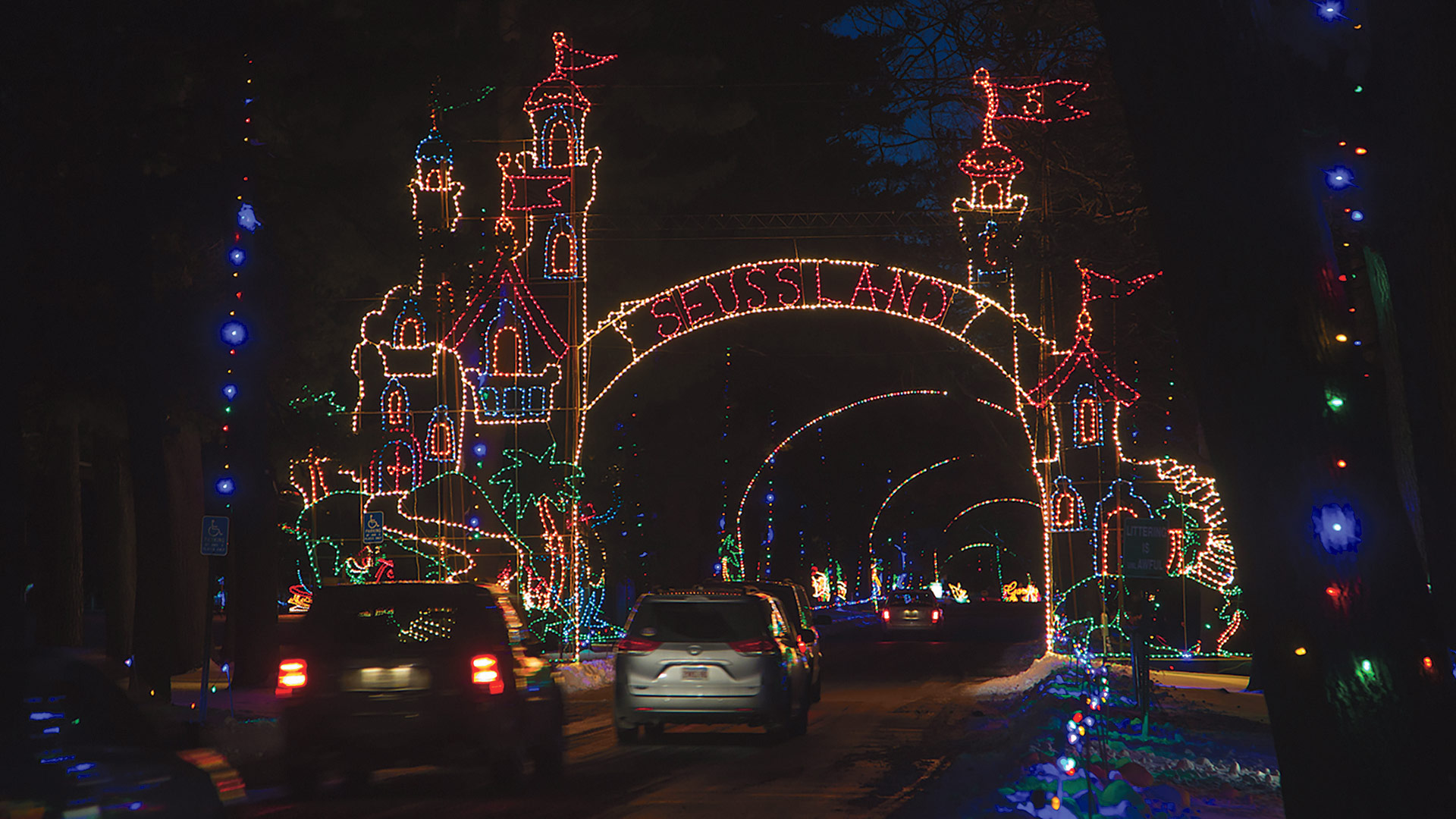
“We’ve had a beautiful autumn, people have come to explore, and the hotel occupancy reflects that,” she noted. “Last September, we ran about 70%, but we also had a Big E. Taking that out, this year was still 44%. Boston was in the teens. They’re nowhere near climbing out of this. We’ve been hit, but not as hard as some metropolitan areas.”
Rosskothen said he’s encouraged by the numbers, but part of that success is due to the efforts hotels are making to keep guests safe — in his case, fogging rooms, changing every sheet and towel, and disinfecting every surface between guests — and to let visitors know that. “Staying in a hotel is, for me, a very safe thing as long as it’s a responsible hotel. If people want a break in their routine, there it is.”
Keeping the Lights On
In a typical year, Greater Springfield’s hotel-occupancy rate is around 64%, just a tick or two below the national average, but well below a city like Boston, which hovers around 79% occupancy. This year’s reversal represents one welcome trend this year — a perception, by families from metro areas, of Western Mass. as, well, a nice place to get away.
That phenomenon also happened when tourism and hospitality were badly dented following 9/11, Wydra said. “We’re more of a rural location, and we kind of pulled up a little sooner.”
That said, the region relies on its tourist attractions, which are “demand drivers,” she told BusinessWest. “How the hotels and restaurants do is a byproduct of those attractions — it’s the whole package. We’re trying to build on what we can and give people a reason to come to Western Mass.”
That’s why the announcement that Bright Nights would take place at Forest Park in Springfield this holiday season “is the best news we’ve had in the last 30 to 60 days.”
Other winter attractions will be open as well, albeit altered in some ways by the pandemic. At Yankee Candle Village in South Deerfield, families can still walk through the facility’s classic winter wonderland, but the visit with Santa at the end will be a video chat, followed by a photo with St. Nick taken using green-screen technology. Reservations will be required, and no walk-ins will be accepted.
For outdoor enthusiasts, Bousquet Mountain in Pittsfield will also require reservations for anyone who doesn’t have a season ski pass. The lodge will primarily be used for operational staging and employee use, and the resort will add outdoor features such as firepits and seating areas while offering outdoor food and beverage service via hot-beverage huts, a walk-up bar, and a pavilion area.
As winter gives way to spring — a time when everyone is hoping a widespread vaccine program begins to put the pandemic in the rear view — “I think there will be pent-up demand” for things to do, Wydra said. “We have quarantine fatigue right now; people want to gather, they want to be with people, and that’s our business. I’m encouraged by news of a vaccine and the progress made on that front. And people are still looking for safety protocols. We’ve got to lead with the fact that they can have a safe visit in our region.”
In the meantime, virtually everyone in the tourism and hospitality world has had to pivot, sometimes dramatically. “I’m proud of our attractions and hotels and restaurants, all of whom had to break from traditional business models and alter the way they do business during the pandemic,” she said. “We really pivoted from being destination marketers in the region to destination managers.”
Explaining that thought, she said communication was ramped up among the region’s businesses and attractions, with a lot of give and take and learning from each other’s experiences.
“For a period of time, we pulled back on the marketing because it made no sense — people weren’t traveling, and they didn’t know where they could go or what to do during the summer,” Wydra went on. “All things considered, we are holding our own. We’re nowhere near where we were in previous years, but when you look around the rest of the state and the rest of the country, we don’t look as bad as many regions. We’re coping.”
John Doleva was certainly hoping for a different sort of 2020 than the one he experienced as president and CEO of the Basketball Hall of Fame. The Hall unveiled a $23 million renovation this year, and the class of 2020 was one of the most star-studded in memory, headlined by the late Kobe Bryant, Tim Duncan, and Kevin Garnett. The pandemic certainly cut into the crowds that might be expected after such a renovation, and the 2020 induction was moved to Mohegan Sun in Connecticut.
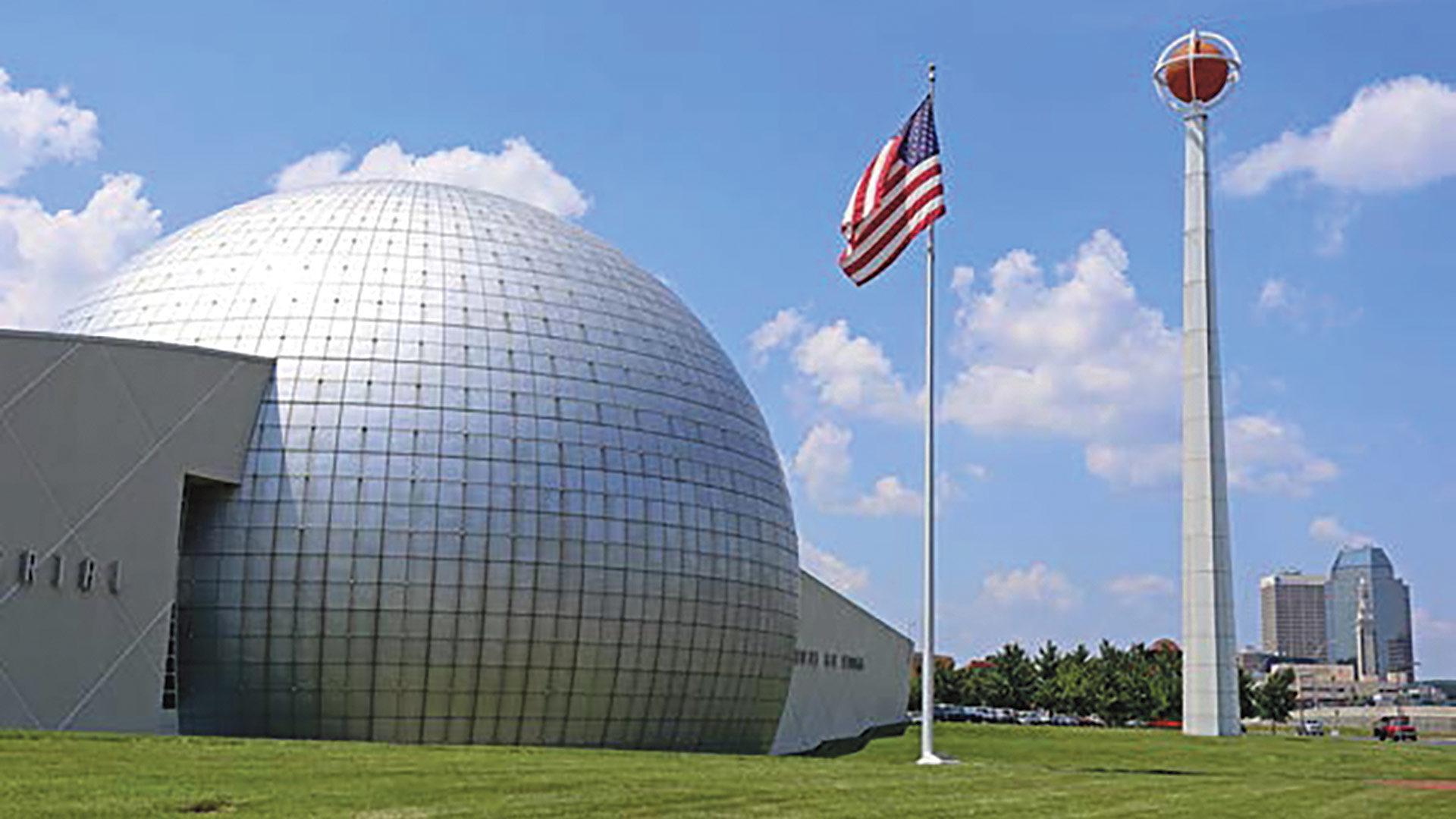
The class of 2021 induction ceremony will be back in Springfield, he noted. But, perhaps more notably, after the Hall reopened on July 8 following a forced closure due to the state’s economic shutdown, visitorship has been about 55% of the prior year’s rate — a decent number, all things considered.
“Moms and dads who are at home want something to do with the kids on an afternoon when it’s raining,” he said. “And the NBA season going through the summer kept basketball top of mind.”
Despite the dueling travel advisories between the two states, the Hall has actually seen more visitors from Connecticut than Massachusetts this year. “People know they can come for a few hours, be safe, and go home,” Doleva said. “I thought 35% to 40% of the prior year would be a good year, so we are pleased with where we are right now.”
It helps that the Hall, whose revenues were nearly 100% admissions-driven when its current building first opened in 2002, operates under a much different model today, with visitorship accounting for about 16% of revenue. That’s good, Doleva added, because visitor numbers can fluctuate with something as minor as a jump in gas prices, let alone a global pandemic.
“We have forecasted we can survive in COVID mode all the way through 2021. I call that a glide path in terms of cash flow,” he told BusinessWest. “But we expect we’ll be out of this by April or May, which positions us for a great summer season.”
Measurable Impact
The Big E, on the other hand, can’t sustain its current level of business — meaning, if the fair gets called off next fall … well, it’s not a scenario anyone wants to think about, for myriad reasons, starting with the Big E’s annual economic impact on the region, estimated at close to three-quarters of a billion dollars, all on an operating budget just over $20 million.
“That’s what makes Eastern States so important to so many people, whether you’re somebody who loves the exposition or a neighbor providing parking or a local business providing laundry services or printing services, or a hotel,” Cassidy said. “The breadth of the impact of the fair is very profound, and when it’s been compromised, like it was in 2020 … well, it really can’t sustain much more than what it’s experienced to date.”
News on a vaccine is welcome in the fair world, he added — “it can’t get here soon enough” — but he wonders how quickly people will want to gather en masse, even after a vaccine is widely distributed.
“People’s sensibilities are clearly going to be influenced by COVID. They say if you do something for two weeks, you can create a habit. Now, add up the number of weeks we’ve been sequestered or people haven’t gone out to dinner. There will clearly be changes in people’s sensibilities. But humans are social animals, and we like being with each other. I take some comfort in that.”
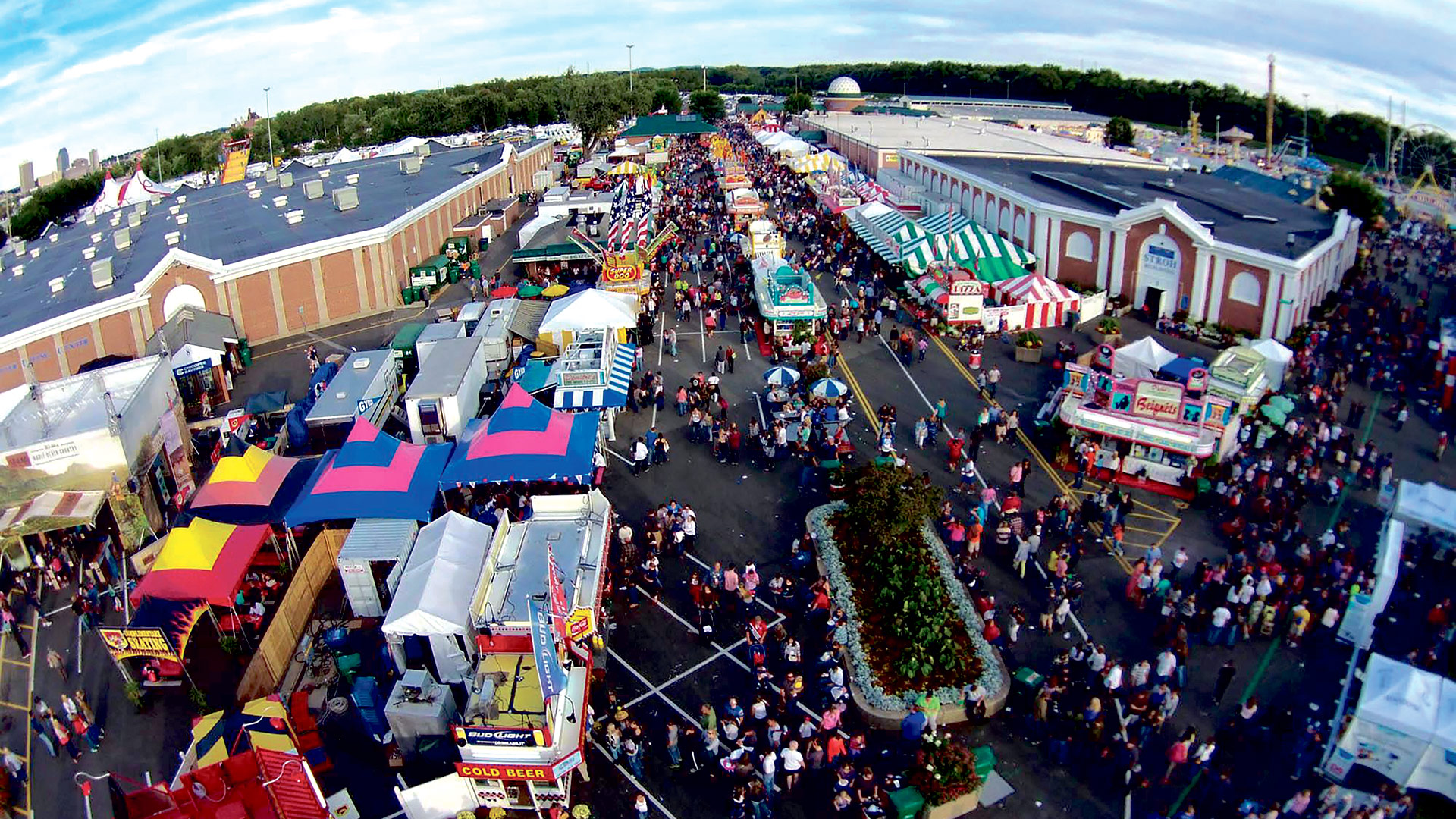
Rosskothen, who hosted a Big E event at the Delaney House recently, featuring fair food and craft vendors, has pivoted in other ways as well, from letting people reserve entire small rooms at that restaurant to planning to keep the outdoor tent up — with heaters running, of course — well into the cold months.
His restaurant business is around 75% to 80% of a normal year, in fact, with the biggest change coming in the volume of takeout and delivery, which currently account for about one-third of sales. He’s also bullish on next year’s events slate at the Log Cabin, assuming crowds are able to gather once again.
“Next year could be the best year we’ve ever had, if we can do all those events. They’re social events — weddings, showers,” he said. “I feel like the social-event business will boom next year.
He’s more reserved about corporate events, feeling that companies will be more timid and want to stick with remote and hybrid events for a while. “But I feel like, when social events are allowed, people will do it. I’m optimistic that the event business will be very good next year.”
Wydra is similarly optimistic, although the region is entering a winter season bereft of large-scale events like the AHL All-Star Classic in 2019 and Red Sox Winter Weekend at the start of 2020.
Even so, she said, “we have tried to be mindful of the phases that our state is going through, and I think our attractions and hotels and restaurants have done everything they can to keep guests top of mind, in terms of offering a safe environment for them.”
Those tourist attractions have come to rely on the GSCVB more than ever for regional destination marketing, she added, because their own budgets have been stretched to the limit this year, and marketing efforts are easily cut when a business is struggling just to cover the mortgage and payroll.
“So many attractions are working so hard to make sure we’re in good shape,” said Doleva, who serves as the bureau’s board chair. “We have an aggressive plan to market and promote the region.”
Wydra agreed. “We’re trying to get the message out there, what these attractions have to offer. Our role as been heightened,” she said. “We’ve learned a lot throughout this pandemic. We’re a resilient industry, and we will come back.”
Joseph Bednar can be reached at [email protected]






